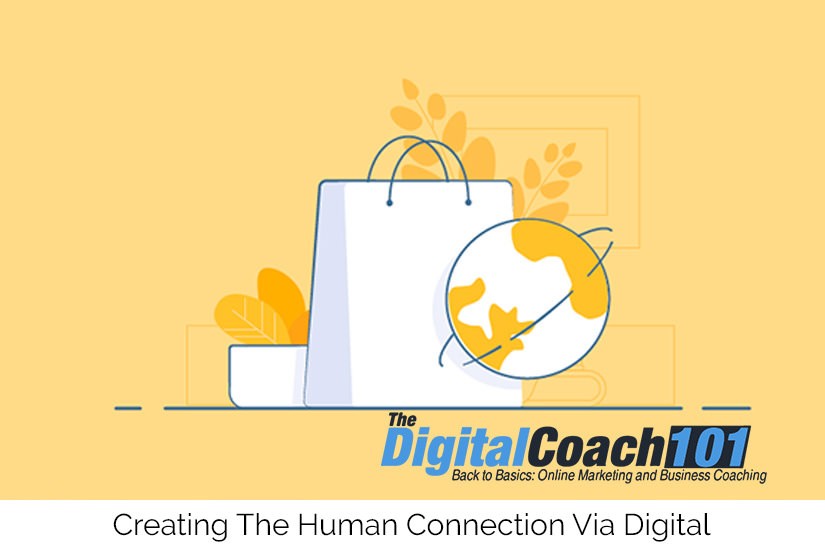Going Global? Here’s How Digital Marketing Can Help
Deciding to expand your business internationally is both exciting and scary as heck. It’s pretty much the biggest step you can take outside your comfort zone. In fact, it takes you so far out of your comfort zone, you’re looking at in your rearview mirror!
When you think about it, growing a business is a lot like growing a child. The early years are a blur of not enough sleep, general exhaustion, and worrying about a thousand things. Then you blink, and suddenly your “baby” is all grown up and leaving home.
When your business gets to the “all grown up” stage, it’s initially a huge sigh of relief. You’re no longer required to work 20 hours a day. You have loyal existing customers, enough new ones coming in to keep the suits happy, and a healthy balance sheet. You head home at a realistic hour every day, and you’ve got your weekends back.
Why on earth, then, would you want to go and mess all that up by taking your business into the international arena?
Well, it’s like anyone who’s ever had a “laat-lametijie” will tell you – you didn’t know how much you’d missed have a baby again until you had one! Not forgetting, of course, a new business baby – quite unlike its human counterpart – actually has the potential to make you a lot of money!
But nostalgic feelings aside, there’s a lot more to entering the international market than occasionally sending off a few products to another country. Some of the key issues facing you are how to:
- Gain visibility in a foreign market
- Establish trust, and
- Compete against established local businesses
Creating An Entry Strategy
You may have a fantastic relationship with your customers locally, but you need to consider how you’re going to create this same relationship in another country where you have no reputation and few, if any, contacts. How will you handle challenges such as:
- International invoicing and sales procedures?
- Dealing with emails and phone calls in different languages?
- Recruiting and training foreign staff?
- Social media campaigns and promotion of your website in an unknown market?
- Online sales?
In addition, from a financial point of view, how ready is your business for a long-term commitment to international expansion? And how on board with the process are senior managers? Are they prepared to recruit outside expertise if necessary?
Sourcing External Funding
If you plan to approach an external lender to help you finance your international expansion, a well thought out marketing entry strategy is essential. I know – the thought of taking out a loan, and incurring the inherent expenses, is a teeny bit stressful.
But think about this:
It’s often better to borrow to finance growth objectives than to place unnecessary pressure on your existing cash flow. You need to ensure your local business continues running smoothly during the expansion process. Tying up ready cash in a costly international extension could make this very difficult.
Investors and other lenders will want to know detailed information about your expansion plans, so make sure you include the following in your market entry strategy:
- Budget – including how much you have, and how much you’ll need to borrow.
- Identified risks and opportunities.
- Your competitors.
- How you plan to market and distribute your product.
- How you plan to customise your product to suit local tastes and cultural preferences.
- A definitive time frame.
Yes, I know. It’s a lot of information for you to compile. And please believe me when I say that my intention is not to terrify you into paralysis. It’s just that expanding your business internationally is a huge undertaking. To make a success of it, you need to be properly prepared.
Once your Entry Strategy is in place, the next thing you need is a Marketing Strategy. Or, more specifically, a Digital Marketing Strategy. In my next blog, I’m going to explore the practical steps needed to implement your digital marketing strategy in an international market. For now, though, let’s content ourselves with looking at why you even need such an animal in the first place.
The Importance Of Digital Marketing
If your locally-based business is at the point where you’re thinking seriously about expanding internationally, then the chances are you already have some sort of digital marketing initiatives in place.
Digital marketing is one of the most exciting things to happen to businesses in a very long time. Small and medium businesses, in particular, have taken advantage of its playing-field-levelling effect, leveraging sales and marketing processes that were previously only available to large companies with deep marketing pockets.
Generally speaking, digital marketing gives smaller businesses up to a three and a half times better chance of increasing their workforce and expanding their business than if they didn’t use it. It’s like rocket fuel for your company, propelling it forward much quicker – and much more cost-effectively – than other methods.
Digital marketing is also highly customisable, meaning you can pinpoint, with surprising focus, the exact audience you want to attract. You can also interact with individual members of this audience through social media such as Facebook. This unprecedented access to existing and potential customers gives you invaluable insight into what your clients need, and how they feel.
This ability to attract not only more traffic, but more highly targeted traffic, hugely increases your chances of securing those coveted conversions.
The Role Of Digital Marketing In The International Expansion Of Your Business
It’s true that digital marketing has revolutionised the way we do business locally. But what’s even truer, is that it has opened up international possibilities small and medium enterprises (SMEs) could not even have considered a few years ago. It’s now possible to expand internationally with significantly lower overheads than ever before. The rise of e-commerce, combined with cheaper international deliveries and increasingly mature digital platforms, is seeing the steady erosion of the financial barriers between local businesses and international consumers.
As an SME, you’re a small fish in a big pond, but digital marketing gives you the ability to compete on an equal footing with the big guys. You might be punching way above your weight, but you can still get great results.
Take video, for example. The costs of filming, producing and airing a marketing video for traditional channels, such as television, are extremely high. Prohibitive, in fact, for smaller businesses. Filming and posting a video online however, is very affordable, and can be done using nothing more complicated than a mobile phone. You can then distribute it for free on numerous digital platforms, where it can be seen by a potential international audience of millions.
And it’s all done in real time. Information can be transmitted across town or across the world equally as quickly. And when we say quickly, we really mean it! At almost 300 000km/second, we can transmit data at close to the speed of light! This makes digital marketing a massive time saver. And when you’re looking at expanding into the international realm, you can expect to be pretty busy. So every nanosecond of your day counts.
The Lowdown
Digital marketing gives you real-time results in no time at all. A simple click can send an email to thousands of customers, and a quick look at your analytics will show you how many of those customers actually opened your email. Analytics can also show you how many people visited your site on any given day, when your site’s the busiest in terms of traffic, and how many new subscribers you attract per day.
How To Get Started in Global Digital Marketing
In our increasingly online world, multi-lingual digital marketing is hands down the best and most cost-effective way to reach the most prospective buyers. However, almost counter-intuitively, digital platforms also complicate international marketing! This is largely because digital increases customer expectations for relevance, which gives local brands a distinct advantage.
This “digital gap” means if you want to expand your business internationally, you must take care to localise your approach. It’s important to remain flexible to accommodate cultural differences. A social media competition, for example, might have worked brilliantly in your home country but could crash and burn somewhere else. Celebrity endorsements may be fantastic in the country in which the celebrity is recognised. But unless he or she is a global superstar, they’re unlikely to be recognised internationally, so the endorsement loses its impact.
I’ll look at all these issues and more in my next blog, but in the meantime, if you’d like some cutting-edge help with how you can use digital marketing to reach an international audience, chat to Digital Coach. We absolutely believe that local is lekker, but we also think international is lekker too! So come have coffee. We’d like to meet you.












